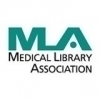The year 2017 saw multiple attempts by the US Senate and House of Representatives to repeal the Affordable Care Act (ACA). In each case, the Congressional Budget Office estimated significant increases in the number of uninsured Americans resulting from the proposed legislation (an increase of 23 million people, in the case of HR1628, American Health Care Act of 2017) [1].
The most obvious and direct harm when patients lose health insurance coverage is to the patients themselves. Patients’ lack of insurance is associated with a range of adverse outcomes, perhaps most urgently an increased risk of mortality [2]. But the fallout from loss of coverage extends beyond the individual. Garthwaite et al. debunked the myth that the costs of uncompensated care for uninsured patients are passed on to privately insured patients. On the contrary, the costs of uncompensated care are largely borne by hospitals, in particular nonprofit hospitals [3]. The resulting budgetary pressures inevitably reduce the resources available for these hospitals to provide services, which include essential information services that hospital libraries provide.
Congress’s attempts at ACA repeal in 2017 inspired a rare display of consensus across the US health care sector. Players as diverse as the American Medical Association, the Association of American Medical Colleges, the American Hospital Association, AARP, and health insurance lobbies united to announce their opposition to repeal of ACA, releasing joint statements advocating for high-quality, affordable health insurance and the strengthening of Medicaid and other safety net programs [4].
As health care professionals, part of our mission is to support patient care and to help improve patient outcomes—outcomes that are demonstrably influenced, at least in part, by the insurance status of our patients. Insurance coverage is not only essential for the patients we serve, but for the financial health of the institutions that employ us. It is the author’s position that affordable health insurance coverage and the ability for patients with preexisting health conditions to obtain such coverage is not only in the public interest, but also in the material interest of the health sciences information community. Decreasing the number and percentage of uninsured Americans, whether through expansion of Medicaid under ACA or the coverage of children under the Children’s Health Insurance Program run by states, is a policy goal that ultimately benefits both our profession and those we serve.
References
- Congressional Budget Office. Cost estimate for H.R. 1628, American Health Care Act of 2017 [rev. 24 May 2017; cited 1 Feb 2018]. <https://www.cbo.gov/publication/52752>.
- Wilper AP, Woolhandler S, Lasser KE, McCormick D, Bor DH, Himmelstein DU. Health insurance and mortality in US adults. Am J Public Health. 2009 Dec;99(12):2289–95.
- Garthwaite C, Gross T, Notowidigdo MJ. Hospitals as insurers of last resort. Am Econ J Appl Econ. 2018 Jan;10(1):1–39.
- Swanson K. What every major health group has said about Graham-Cassidy. Vox.com [Internet]. 22 Sep 2017 [cited 1 Feb 2018]. <https://www.vox.com/policy-and-politics/2017/9/21/16340066/health-group-statements-graham-cassidy-bill>.


